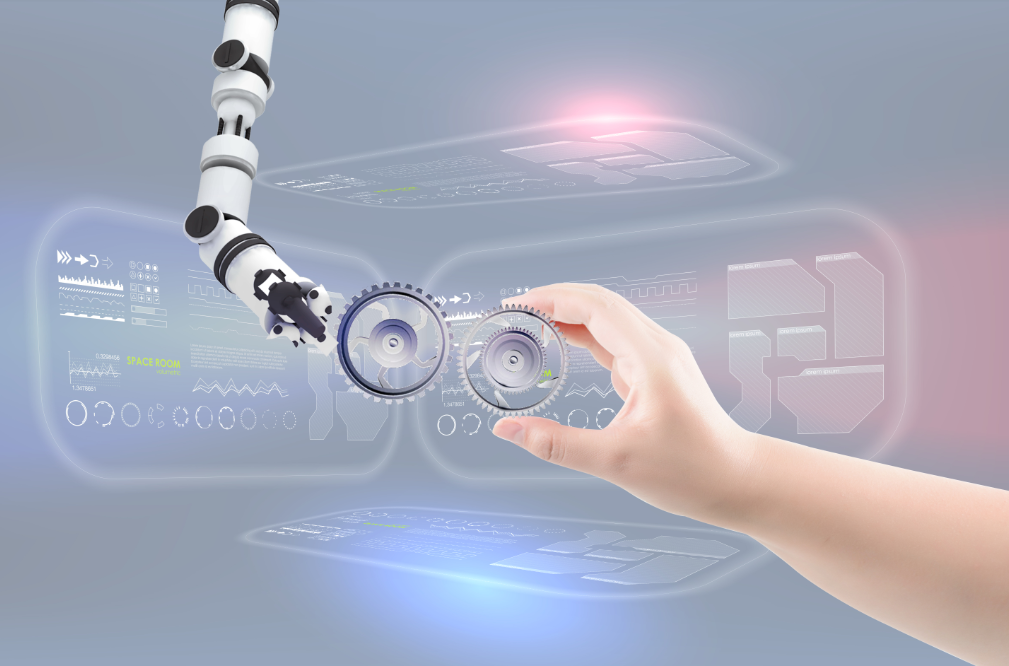

Artificial intelligence (AI) and the Internet of Things (IoT) have already driven significant developments in industries such as manufacturing and banking respectively, but the two technologies combined have There are strong opportunities available across a wide range of industries.
The Internet of Things has created a real-time communication network of interconnected devices and has become a multi-billion dollar industry. Statista estimates that its revenue will exceed $1.3 trillion by 2024.
At the same time, artificial intelligence has experienced tremendous growth since the release of consumer-facing generative AI programs.
Here’s how some leading industries are using these technologies, and how industry leaders see this use evolving in the future.
Currently, the role of artificial intelligence in the insurance field is to improve efficiency and processing speed. Charlotte Koep, chief operating officer of insurance platform Root, said: “Many people are experimenting with artificial intelligence in the insurance claims space, and progress is happening rapidly. However, it is still early and the approach is still very hybrid and requires careful human review. and intervention.”
If you’ve ever worn a smartwatch to track your movements to obtain medical assistance, or had your driving monitored by a car insurance company, you’ve noticed that the insurance industry currently Where is the focus of networking?
The marriage of these two technologies is still some way off in the industry, but AI may well be the really useful advantage that IoT has been looking for in the insurance space, especially the ability to impact pricing and customization .
Since vehicles are dispersed in different geographical locations at any time, the Internet of Things has been widely used in fleet management.
Justin Coetzee, CEO of GoMetro, said: “Being able to see your own vehicles and those of your subcontractors on one screen, whether you are a telematics or tracking provider, will have a real impact on the logistics industry. Impact."
Fleet optimization systems are able to collect, aggregate and analyze IoT hardware from dashboard and driver cameras as well as portable tracking units. This allows fleet managers to drill down into the details of a vehicle's operation; even check tire pressure and temperature.
Nic Laschinger, technical director at Euphoria Telecom, said: “Artificial intelligence tools, when implemented correctly, can provide personalized recommendations to phone providers based on a specific customer’s personal data.
“This personal touch and the ability to resolve customer queries faster improves the customer’s experience with the company – building loyalty and trust. ”
If a business has a contact center, AI tools can analyze call data and provide further insights into customer preferences, behavior and sentiment. These can be used to further improve the customer experience.,
Ryan Falkenberg, CEO of CLEVVA, added: “Artificial intelligence is helping to ‘augment’ contact centres, with virtual agents able to answer queries across multiple platforms and in multiple languages. "
"AI-powered virtual agents can increasingly automate sales, service and support conversations without human assistance.
This means the number and types of calls human agents will be asked to answer are changing dramatically. ”
At the same time, the Internet of Things has the potential to reduce call volumes as devices can increasingly resolve themselves; reducing the need for service-related queries.
In the future, this may provide proactive Customer Service Solutions – IoT allows smart objects to communicate issues directly to manufacturers; and may even help prevent problems before they occur.
Education Tech Startup Mindjoy David Morgan, Head of Learning, reports: “The convergence of artificial intelligence and the Internet of Things represents not only a convergence of technology, but also a renaissance in education. ”
While some concerns have been raised due to plagiarism and the possibility of students submitting AI-generated work, Morgan said AI will be a valuable tool for both teachers and learners. Learners using the technology have experienced "unprecedented leaps in learning engagement," and teachers have been able to improve their skills and expand their impact.
The use of IoT in education has been mixed, with mostly is because the associated costs of the hardware can quickly become obsolete.
But IoT is making inroads in commercial applications in the education sector, smart lighting and efficient heating and cooling solutions, all of which are reducing operating costs by Changing the school environment without sacrificing service quality.
TALENT
Although the adoption of AI in South Africa will be gradual, Thelander believes that once adoption starts to accelerate, the use of AI in the industry will grow exponentially.
“We are getting closer to that moment It’s getting closer,” he said. “We’re already using generative AI to improve efficiencies in areas like marketing and project requirements scoping, but AI’s biggest impact in the industry may be better aligning talent skills with customer needs match. ”
The above is the detailed content of How AI and IoT are disrupting key industries. For more information, please follow other related articles on the PHP Chinese website!
 Application of artificial intelligence in life
Application of artificial intelligence in life
 How to send your location to someone else
How to send your location to someone else
 What are the applications of the Internet of Things?
What are the applications of the Internet of Things?
 What is the basic concept of artificial intelligence
What is the basic concept of artificial intelligence
 The m2m concept in the Internet of Things
The m2m concept in the Internet of Things
 Mini program path acquisition
Mini program path acquisition
 The main components that make up the CPU
The main components that make up the CPU
 Window function usage
Window function usage




